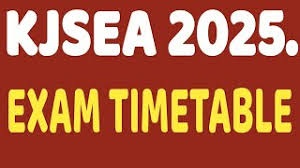KNEC Prepares for Inaugural Kenya Junior School Education Assessment Under CBC Framework
The Kenya National Examination Council (KNEC) is making preparations to initiate the inaugural Kenya Junior School Education Assessment (KJSEA), a significant milestone in the implementation of the Competency-Based Curriculum (CBC).
Dr. David Njengere, the Chief Executive Officer of KNEC, has confirmed that the registration of candidates has been finalized and that the team is actively engaged in the verification of data.
He anticipates sharing a detailed list of registered candidates by the conclusion of April.
Recently, Nairobi was the venue for the second annual symposium focused on Competency-Based Assessment, which was organized by KNEC. This event convened key stakeholders to discuss the optimal methods for interpreting assessment results, enhancing exam administration, and ensuring equitable access to education throughout the nation.
During the symposium, Dr. Njengere underscored the significance of monitoring each student’s progress beginning in Grade Three. This strategy will enable KNEC to identify equity concerns early and propose targeted interventions to assist students who require additional support.
Dr. Njengere further reaffirmed KNEC’s steadfast commitment to the CBC framework. He stated that the forthcoming Kenya Junior Secondary Education Assessment, scheduled for later this year, epitomizes the council’s emphasis on competency-based learning and evaluation.
Professor Julius Nyabundi, the Chairman of KNEC and the chair of the symposium, recognized the Ministry of Education’s endeavors in promoting education reforms that meet contemporary demands.
He also brought attention to ongoing discussions regarding the potential necessity of making mathematics a compulsory subject, suggesting that permitting students to select subjects that align with their interests and strengths may yield greater benefits.
Clarifications on Subject Selection in Senior Schools
The Kenya Institute of Curriculum Development responded to concerns related to compulsory subject choices in senior schools. They confirmed that students will not be mandated to take subjects that they have not encountered during their junior school education.
For example, students aspiring to pursue careers in aviation may opt for subjects such as physics and geography, which correspond with junior school courses like social studies, thereby facilitating a seamless learning progression.
Summary of KNEC’s Upcoming Initiatives
1. Completion of candidate registration and data verification for KJSEA.
2. Publication of the registered candidates list by the end of April.
3. Focus on tracking individual student progress starting from Grade Three.
4. Encouragement of flexible subject choices that align with students’ interests.
5. Continuing reforms to align exams with CBC principles.
The initiation of the Kenya Junior School Education Assessment represents a considerable advancement in Kenya’s education reform journey, striving to enhance competency development and equitable learning outcomes nationwide.
